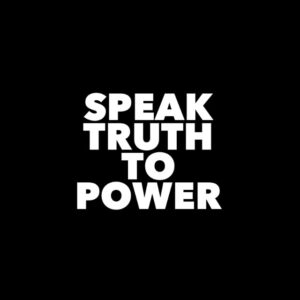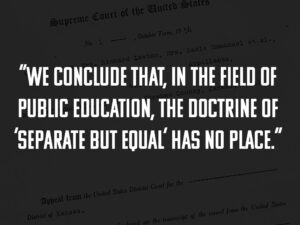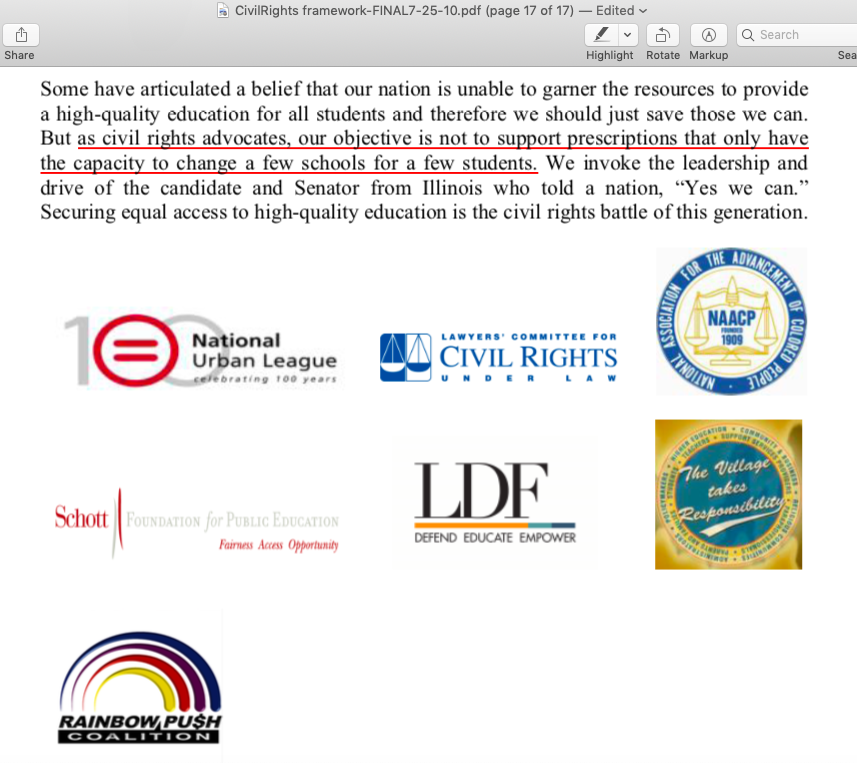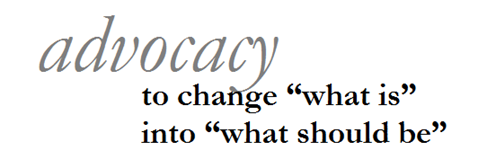To advocate means to plead for a cause, to support it, to argue for it, to defend your cause or that of another. But because misinformation and deceit have repeatedly led us down the wrong policy paths — we need to proceed thoughtfully.
 It’s true; we must speak truth to power. But we must also discuss the issues with each other in order to decipher what misinformation yourself and others currently accept as fact. Only then can we successfully correct the misinformation keeping us from advancing real reforms.
It’s true; we must speak truth to power. But we must also discuss the issues with each other in order to decipher what misinformation yourself and others currently accept as fact. Only then can we successfully correct the misinformation keeping us from advancing real reforms.
We are beginning to see “what is” — longstanding inequality and injustice.
Many of us hold beliefs and values about “what should be” — equality, fairness, and justice being among them.
Too many only ask, “how do we proceed?” Instead, we must first ask, “why haven’t we?”
Repeatedly, good proposals have been discussed then buried “in committee.” But proposals that don’t address our nation’s problems with solutions get fast-tracked into law. Clearly our lawmaking process has left us behind.
It’s Not For Lack of Trying : It’s For Lack of Understanding
Misinformation campaigns have been used to confuse and divide us. But we can correct the damage that has been done. Consequently, we need to better understand the political language of our times so as to avoid being fooled and misled.
As George Orwell pointed out in his essay Politics and the English Language, language is “an instrument which we shape for our own purposes.” Therein lies the problem. Language has been used to obstruct our progress towards real reforms.
“The point is that the process is reversible.”
We must correct the misinformation being fed to the public. But it will take a well-informed, unrelenting effort to explain why lies and half-truths are exactly that and then clarify the alternative reality—the truth. Therefore, advocates must “rise above emotions” in order to focus on the issues, make personal connections, and build mutual trust.
” … to think clearly is a necessary first step toward political regeneration.”
Understanding The Words of Others : Let’s Be Clear
In order to move forward united in our advocacy, people need to be able to identify what unites us. Therefore, we must not let misunderstood words keep us apart.
Here are a few terms currently tumbling around in the news-cycle and my interpretation of them, as determined by research and attempts to clarify them in my own mind. The lens through which I judge meanings —my world view based on what I value in public policies— is fairness.
Social justice is the degree to which societal institutions promote the conditions necessary for the realization of what we value.
Social injustice is the extent to which the pursuit of what we value is inhibited by oppressive institutional constraints and barriers.
“Systemic” or “institutional” racism exists where institutions, which are a part of a system, discriminate or are prejudging people based on their race. (We should also consider ethnicity, social class, and one’s sex in discussions of systemic barriers.)
“White privilege” refers to a social structure based a white-skinned racial hierarchy and the relative ease with which a person with white skin can navigate life as compared to those with skin of another color.
“Civil rights” are citizen’s rights.
So when we look at saving and really reforming our public institutions, we are talking about policy changes that will benefit all citizens — striking a balance between privilege and oppression. But small changes will not suffice to breakdown our well-established institutional barriers. We must advocate for systemic, systematic improvements. #RealReforms
Advocacy : A State of Mind
“The starting point for all success is an unyielding belief that we can succeed, that we can make a difference in the political process.” Samuel Halperin
Samuel Halperin left behind political wisdom to help guide us. But he felt what is “far more powerful” to successful advocacy is the person or group’s belief system. That is what people must clarify in their own minds before proceeding.
“Victory in legislation and public policy—like success in other walks of life—has its roots in sound organization, thoughtful planning, unceasing cooperation, imaginative liaison, constant surveillance, and just plain hard work.”
Samuel Halperin: From A Guide for the Powerless—And Those Who Don’t Know Their Own Power; A Primer on the American Political Process, Washington, D.C.: American Youth Policy Forum, 2001.
Are you ready?
We don’t have to start from scratch. Instead, we need to look at some existing laws that propelled our nation forward. They still form a solid foundation for better policies.
 Then we need to look at the past work of various coalition and ask them, “why haven’t we?”
Then we need to look at the past work of various coalition and ask them, “why haven’t we?” The words shown above came from a Framework for Providing All Students an Opportunity to Learn through Reauthorization of the Elementary and Secondary Education Act.
The words shown above came from a Framework for Providing All Students an Opportunity to Learn through Reauthorization of the Elementary and Secondary Education Act.
We now MUST face the next reauthorization of the Elementary and Secondary Education Act head on and NOW! But in 2015, we failed to be effective in our advocacy. Consequently, it is especially relevant NOW that we work to make that law righteous and fair.
Start by understanding why ending high-stakes testing is a crucial first step in advancing real reforms.
